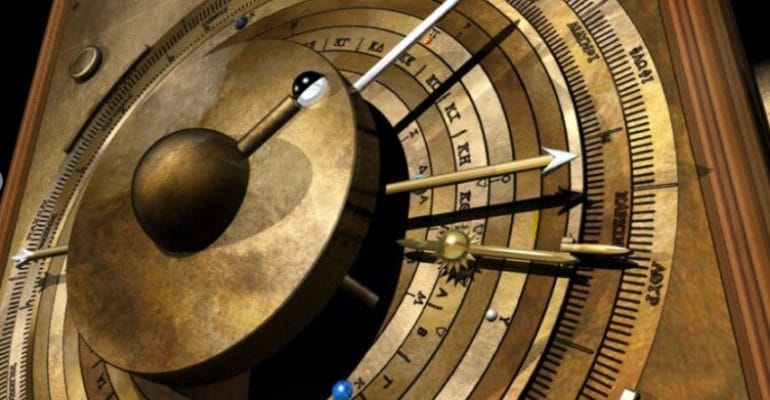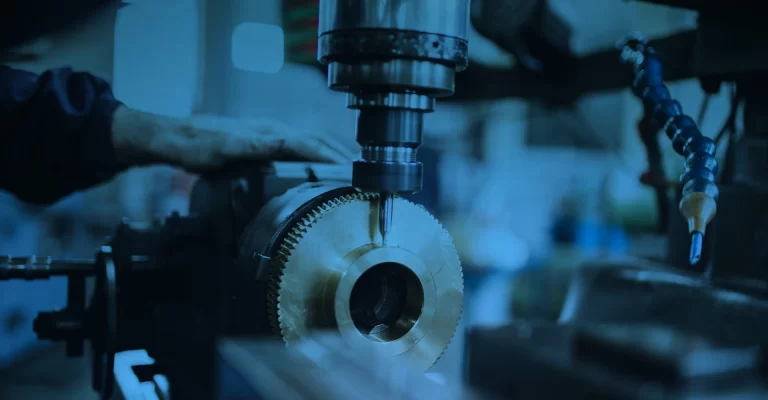The Antikythera a 2000 year old puzzle still in the making – Atlantic International University
August 25, 2022 2023-09-18 21:21The Antikythera a 2000 year old puzzle still in the making – Atlantic International University

The Antikythera a 2000 year old puzzle still in the making – Atlantic International University
In our effort as humans to understand the surrounding universe. There have been many studies and experiments that have been carried out, and without them, we would not be where we are today.
Without as many facilities and communications as we enjoyed today, our ancestors sought with great fervor to dominate the cosmos and use it to their benefit. A good example will be the interest to trace the seasons, to optimize harvests and prevent temperature changes, by using an easy-to-understand example.
Proof of this, is the Antikythera mechanism, an ancient Greek cosmos, which was an astronomical computer used to predict the positions of heavenly bodies in the sky.
Wikipedia describes it as “the oldest example of an analogue computer used to predict astronomical positions and eclipses decades in advance. It could also be used to track the four-year cycle of athletic games, which was like an Olympiad, the cycle of the ancient Olympic Games.
Learning the history behind:
According to the site Ars Technica “The Antikythera mechanism was likely built sometime between 200 BCE and 60 BCE. However, in February 2022, Freeth suggested that the famous Greek mathematician and inventor Archimedes (sometimes referred to as the Leonardo da Vinci of antiquity) may have actually designed the mechanism, even if he didn’t personally build it. (Archimedes died in 212 BCE at the hands of a Roman soldier during the siege of Syracuse.) There are references in the writings of Cicero (106-43 BCE) to a device built by Archimedes for tracking the movement of the Sun, Moon, and five planets; it was a prized possession of the Roman general Marcus Claudius Marcellus. According to Freeth, that description is remarkably like the Antikythera mechanism, suggesting it was not a one-of-a-kind device”.
“The Antikythera was discovered among wreckage retrieved from a shipwreck off the coast of the Greek island Antikythera in 1901. The recovery of the shipwreck itself was the first major underwater archaeological expedition. It was undertaken by sponge divers, with the assistance of the Greek Royal Navy (1900-1901)”.
“In 1951, a British science historian named Derek J. de Solla Price began investigating the theoretical workings of the device. Based on X-ray and gamma ray photographs of the fragments, Price, and physicist Charalambos Karakalos published a 70-page paper in 1959 in the Transactions of the American Philosophical Society. Based on those images, they hypothesized that the mechanism had been used to calculate the motions of stars and planets—making it the first known analog computer”.
“In 2002, Michael Wright, concluded that the device was specifically designed to model “epicyclic” motion in keeping with the ancient Greek notion that celestial bodies moved in circular patterns, called epicycles. (This was pre-Copernicus, so the fixed point around which they moved was believed to be the Earth.)”
It’s important to highlight that in order to see something similar to the Antikythera mechanics, humanity waited until the 14th century, when the mechanical clock appeared throughout Western Europe.
And what About the future?
The Antikythera’s team plans to keep working on the mechanism — there are further inscriptions to be deciphered and the possibility that more fragments could be found.
Nowadays, the Antikythera is safe in the National Archaeological Museum, Athens. In fact, some time ago, they presented a temporary exhibition called “The Antikythera Shipwreck: The ship – the treasures – the Mechanism”.
What about us?
Man has always sought to acquire knowledge to improve his living conditions. There are still many gaps in history to fill, understanding that many of these inventions were lost during wars and natural misfortunes. Mechanical engineering, Science, Culture, Archaeology, history of science and technology, and historians, among many others, are critical professions to help to study the past to precede the future.
If you want to learn more about this amazing finding, don’t miss the following links:
Decoding the Heavens: The Mystery of the Antikythera Mechanism
The ancient ‘computer’ that simply shouldn’t exist – BBC REEL
Antikythera Mechanism. The 2’000 Year Old Computer. BBC, 2012























